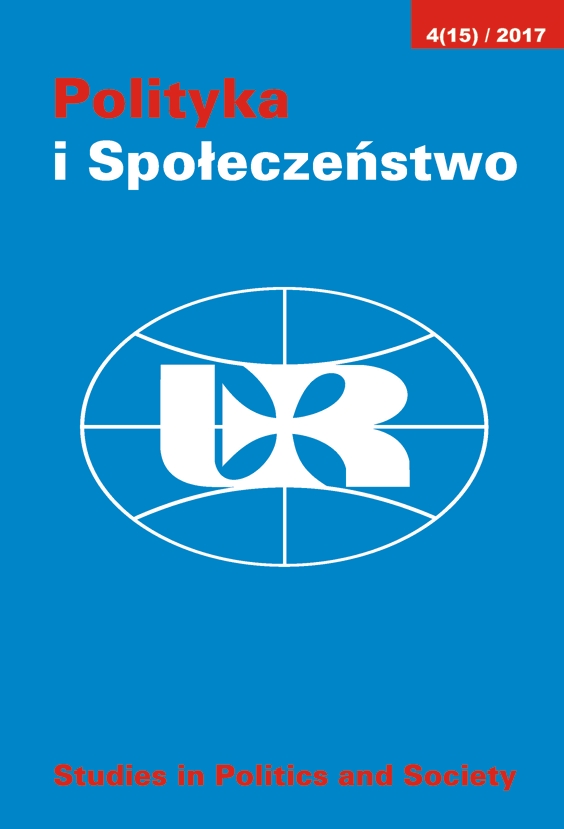Afera taśmowa z 2014 roku jako przykład politycznego podziału w mediach – studium przypadku
DOI:
https://doi.org/10.15584/polispol.2017.4.7Słowa kluczowe:
theory of communication, persuasive evaluation, political communication, structural analysisAbstrakt
Evaluation is the fundamental component of persuasion, and as such is making the constitutive frame for political conflicts. It is a function of meaning, concerning primarily the expression of our principle and emotive attitudes to reality. Every persuasive evaluation must be communicated – carried by verbal and non-verbal signs, assembled by codes which organize emotions at three levels of: lexemes, evaluative statements and narrative texts (superstructures). The text describes the main practices of evaluation in political communication, following the premises of anthropology of word and mass media theory. Working on the examples from political debates, selected means of persuasive evaluations are tested. To recapitulate the aforementioned claims an overall structural model of analysis is presented. It comprises all relevant factors and contexts of evaluation practices in political persuasion.
Pobrania
Opublikowane
Jak cytować
Numer
Dział
Licencja

Utwór dostępny jest na licencji Creative Commons Uznanie autorstwa – Na tych samych warunkach 4.0 Miedzynarodowe.


